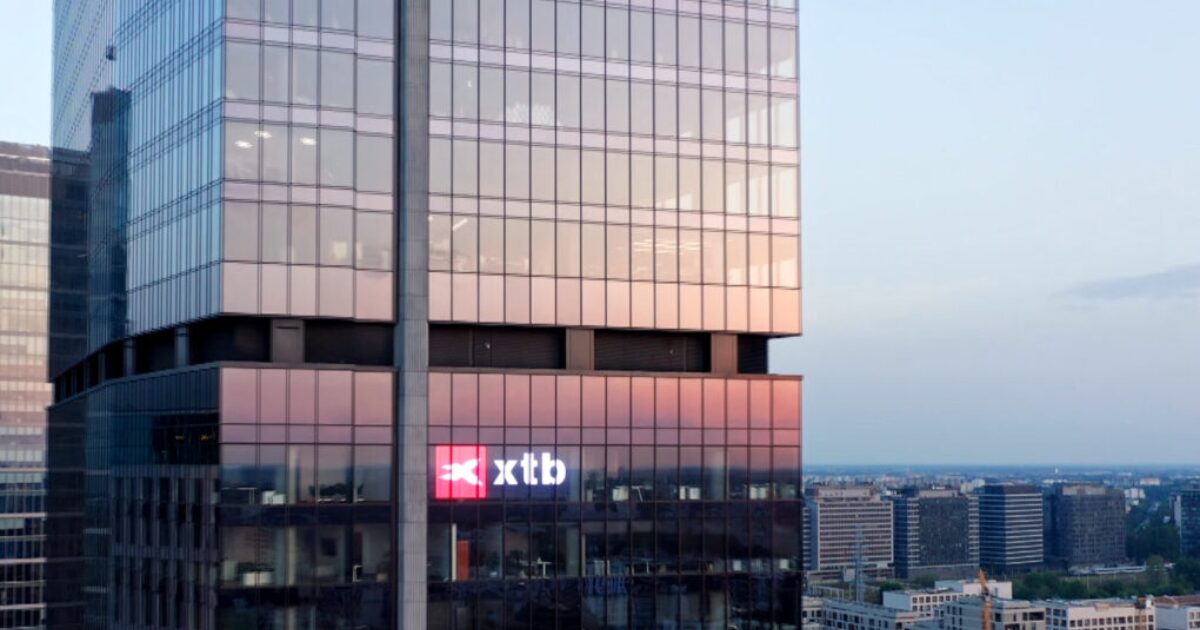Do Forex Traders Pay Tax in Saudi Arabia?
 Sam Reid Staff Writer
Sam Reid Staff Writer
Introduction
Saudi Arabia is often seen as a unique case in global financial markets. The Kingdom, home to the largest economy in the Gulf, is balancing tradition and innovation as part of its Vision 2030 program, which seeks to diversify beyond oil. Forex trading, once a niche practice, is now on the radar for both Saudi nationals and expatriates living in the Kingdom.
But a recurring question remains: Do forex traders pay tax in Saudi Arabia
The short answer is no, at least not at the individual level. Saudi Arabia offers one of the most favorable tax regimes in the world. Yet there are nuances worth exploring. For example, corporate entities may face obligations, international traders must consider rules from their home countries, and compliance with Saudi regulators is critical.
In this guide, we will unpack the legal framework, the role of regulators, tax rules, practical trading considerations like market hours and forex rates in KSA, and how to select the right broker.
The Legal Landscape of Forex Trading in Saudi Arabia
Forex is legal under regulation
Forex trading is allowed in Saudi Arabia. Both locals and foreign residents can participate. Oversight comes primarily from two bodies:
- Saudi Central Bank (SAMA): Manages monetary stability, the Saudi riyal peg to the US dollar, and ensures markets align with Sharia principles.
- Capital Market Authority (CMA): Oversees capital markets, licensing, investor protection, and financial transparency.
These institutions create a framework that encourages participation while safeguarding the economy against unlicensed brokers and fraudulent schemes.
Sharia compliance matters
Saudi Arabia operates under Islamic finance principles. Traders must use swap free Islamic accounts, which avoid overnight interest charges. Speculative practices that resemble gambling are also discouraged. Many international brokers offer Islamic account options tailored for Saudi residents.
The SAR to USD peg
Since 1986, the Saudi riyal (SAR) has been pegged to the US dollar at 3.75 SAR per USD. This peg provides stability for both oil exports and forex trading activities. However, it also reduces volatility in SAR pairs, meaning many Saudi traders prefer major global pairs like EUR USD or GBP USD for liquidity and tighter spreads.
Taxation of Forex Trading in Saudi Arabia
No personal income tax
One of the defining features of Saudi Arabia’s tax system is the absence of personal income tax. Individual forex traders keep 100 percent of their profits. This applies to both Saudi nationals and expatriates.
For example:
- A Saudi resident trading EUR USD and earning SAR 50,000 in profit over a year will not owe income tax.
- An expatriate in Riyadh generating the same profit also enjoys the same benefit.
Corporate and business tax
The situation changes for businesses or entities formally trading as companies. Corporate taxes and Zakat may apply:
- Zakat: A 2.5 percent levy on certain business owned assets.
- Corporate tax: Non Saudi owned companies may face a 20 percent corporate tax on profits.
These rules rarely affect individual traders, but anyone running a managed fund or trading firm should be aware of them.
VAT considerations
Saudi Arabia implemented a 15 percent VAT in 2020. While VAT applies broadly to goods and services, most forex transactions remain exempt. However, traders should review their broker’s terms since some apply VAT to commissions or service fees.
International obligations for expats
Expatriates must also consider tax obligations in their home countries. For example, an American trader in Saudi Arabia may not pay Saudi tax but is still required to declare profits to the IRS. Similarly, UK residents may face HMRC reporting obligations.
Forex Trading Hours in Saudi Arabia
The forex market runs 24 hours a day, five days a week, but not all hours are equal. Liquidity, volatility, and spreads vary depending on session overlaps.
Best times to trade forex in Saudi Arabia
- London session: 11:00 AM to 8:00 PM AST. Strong liquidity in EUR, GBP, and USD pairs.
- New York session: 4:00 PM to 1:00 AM AST. Major market moving events, especially for USD pairs.
- London to New York overlap: 4:00 PM to 8:00 PM AST. Considered the prime window for Saudi traders, with the tightest spreads and highest activity.
Local dynamics that affect timing
- Oil prices: Sudden moves in global crude can affect forex rates in KSA and SAR sentiment.
- Ramadan and Hajj: Liquidity often dips during religious periods, creating slower trading conditions.
- Regional politics: OPEC decisions, Gulf tensions, or central bank announcements can spark volatility.
Risks of Forex Trading in Saudi Arabia
Market volatility
Even with the SAR peg, global forex markets are inherently volatile. Major pairs can swing hundreds of pips in response to economic data. Risk management tools like stop loss and take profit orders are vital.
Unregulated brokers
Fraud remains a global problem. Traders in Saudi Arabia should avoid offshore brokers that lack credible licensing. Stick to those regulated by FCA in the UK, CySEC in Cyprus, ASIC in Australia, or with CMA approval where possible.
Regulatory changes
Though unlikely, adjustments to tax laws or forex regulation under Vision 2030 could affect the trading environment. Staying updated with CMA and SAMA announcements is recommended.
Choosing a Forex Broker in Saudi Arabia
Regulation and licensing
Regulated brokers ensure your funds are protected. CMA licensing is ideal, but many Saudi traders also choose brokers with international Tier 1 regulation.
Sharia compliant accounts
Ensure your broker offers swap free Islamic accounts without hidden charges.
Platforms and tools
Look for brokers offering MetaTrader 4 (MT4) and MetaTrader 5 (MT5), charting tools, indicators as well as mobile access for trading on the go.
Costs and spreads
Compare spreads, commissions, and execution speeds. For example, XTB is known for tight spreads and a transparent fee structure, making it attractive for Saudi traders.
Reputation and support
Choose brokers with Arabic language support and a strong reputation in the region. Community reviews and global awards can be useful indicators.
Practical Example: A Trade in Saudi Arabia
Imagine a Saudi trader in Jeddah watching the EUR USD pair during the London to New York overlap. Economic data from the Eurozone shows weaker than expected inflation.
- The trader short sells EUR USD at 1.0850.
- Sets a stop loss at 1.0900 and a take profit at 1.0800.
- Within two hours, the pair drops to 1.0800, locking in a 50 pip profit.
This illustrates how Saudi traders can use global news to generate returns while still benefiting from a tax free environment.
The Role of Forex Rates in KSA
Importance of forex rates
Forex rates in KSA matter beyond speculative trading. Importers, exporters, and expatriates moving remittances rely on stable exchange rates. For traders, monitoring forex rates in KSA helps align decisions with local economic sentiment.
SAR as a pegged currency
Because the SAR is pegged to the US dollar, volatility in SAR pairs is limited. Traders often use SAR accounts for convenience but focus on major global pairs for higher profit potential.
Saudi Arabia vs Other Gulf States
Tax in Saudi vs Dubai
While Saudi Arabia imposes no personal income tax, Dubai in the UAE follows a similar path with no tax on individual trading profits. Both countries encourage investment through tax incentives, but Saudi Arabia applies corporate taxes more consistently through Zakat and business rules.
Regulation comparison
- Saudi Arabia: SAMA and CMA as regulators, strong Sharia compliance requirements.
- UAE: Central Bank of the UAE and the Securities and Commodities Authority oversee financial markets, with more openness to international brokers.
Education and Resources for Saudi Traders
Learning platforms
Top brokers like XTB provide webinars, tutorials, and strategy guides. Education is crucial in a country where forex adoption is still relatively new.
Demo accounts
Before risking capital, Saudi traders are advised to test strategies in demo environments. This is especially helpful for beginners navigating time zones, sessions, and volatility.
Risk awareness
Studies consistently show that 70 to 80 percent of retail traders lose money in forex. Awareness of this statistic helps set realistic expectations.
Why XTB Is a Strong Option for Saudi Traders
While many brokers operate globally, XTB stands out for Saudi Arabia:
- Tier 1 regulation with FCA and CySEC.
- Islamic account options that comply with Sharia law.
- Arabic support and region specific educational resources.
- Low spreads and fast execution, making it easier for traders to capture opportunities during the London to New York overlap.
XTB’s global reputation, combined with offerings tailored for Gulf clients, makes it a practical choice for Saudi traders.
Conclusion
Forex trading in Saudi Arabia is legal, growing, and highly attractive thanks to the absence of personal income tax. Individual traders can keep 100 percent of their profits, while corporate entities may face Zakat or corporate tax.
The market is shaped by strong regulatory oversight from SAMA and CMA, Sharia principles, and local dynamics such as oil prices and religious calendars. For success, Saudi traders must choose regulated brokers, manage risk effectively, and focus on optimal trading hours.
With the right approach, forex trading in Saudi Arabia offers a combination of opportunity and security. For many, the lack of personal tax and the presence of reliable brokers like XTB create an environment worth exploring.
FAQs
Is forex trading allowed in Saudi Arabia
Yes. Forex trading is legal in Saudi Arabia under the oversight of SAMA and the CMA. Traders must use regulated brokers and comply with Sharia principles.
Are foreigners taxed in Saudi Arabia
No. Foreign residents trading forex are not subject to personal income tax. However, their home countries may require tax declarations.
Do forex traders pay tax in Dubai
No. Like Saudi Arabia, Dubai does not impose income tax on individual trading profits. Corporate entities may face different rules.
What is the 90 percent rule in forex
The 90 percent rule refers to the observation that a large percentage of retail forex traders, often cited as 90 percent, lose money. It highlights the importance of risk management, education, and discipline.
Disclaimer: Remember that forex and CFD trading involves high risk. Always do your own research and never invest what you cannot afford to lose.
 08th Sep 2025
08th Sep 2025










